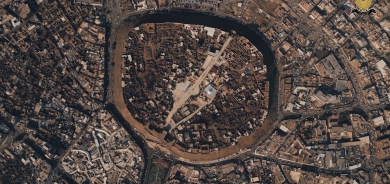Iraq says Kurds agree to export oil via central marketing body

The autonomous region's prime minister and top energy official travelled to Baghdad earlier this week, intensifying efforts to settle the long-running dispute over exports of oil from Kurdistan via a new independent pipeline to Turkey.
The region has previously insisted it will export crude on its own terms, bypassing Iraq's State Oil Marketing Organisation (SOMO), but Shahristani said the Kurds had finally relented.
"After hours of meetings, we have agreed that our brothers in the region will be represented in SOMO and agreed that this is the sole national outlet responsible for exporting oil," Shahristani said in an interview on Iraqi state television late on Wednesday. "This is an important step forward".
Baghdad has repeatedly threatened to sue Ankara and slash Kurdistan's share of the national budget if exports go ahead through the pipeline without its consent.
The pipeline was completed late last year, and oil has since been pumped through it into storage tanks at Turkey's Ceyhan, but exports from the Mediterranean port are on hold to give diplomacy a chance.
Negotiations have carried on for months with little progress and Shahristani said differences remained over revenue-sharing.
"The second issue that is still unresolved is that they want the revenue from oil exports to be deposited in a private account for the region in the DFI (Development Fund for Iraq)," Shahristani said.
Revenue from the sale of Iraq's oil is paid into the DFI in New York for Baghdad to disburse.
Kurdistan is entitled to a 17 percent share, but says it in fact receives far less than that, and in recent weeks has accused Baghdad of withholding funds, leaving civil servants in the region unpaid.
Shahristani said the finance ministry had now sent enough cash to cover the salaries of Kurdish government employees for January, but faced a liquidity crisis and would not be able to pay in February or after that unless the region resumed oil exports.
"The Finance Ministry said it will not be able to keep paying salaries whilst the region is still not delivering oil," he said. "The ministry has stopped payments to the region and the only solution for this real problem if for the region to start exporting oil"
Crude from Kurdistan used to reach world markets through a Baghdad-controlled pipeline, but exports via that channel dried up due to a row over payments for oil companies operating in the northern enclave.
Since then, the Kurds have been exporting smaller quantities by truck across the border whilst building the pipeline to Turkey and negotiating a multi-billion dollar energy deal with Ankara.
By Reuters














